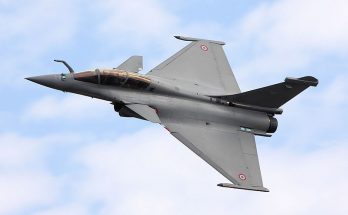Britain’s Chancellor of the Exchequer, Rachel Reeves, has announced a £2.9 billion ($3.77 billion) hike for the defense budget in fiscal year 2025-2026. The announcement came as the chancellor presented the first budget for the Labor government of Prime Minister Keir Starmer since coming into office the day after the country’s election back on July 4.
While the funding will undoubtedly be welcomed by the Ministry of Defence and the British Armed Forces, reports indicate the additional monies represent a singular event, rather than a benchmarked new topline.
Instead, the Labor government intends to conduct a wider review of future defense spending with an eye on overall national defense and security.
That review – a Strategic Defence Review (SDR) launched in July and expected to be released in the first half of 2025 – will examine Britain’s strategic environment through the lens of the ongoing war in Ukraine, conflict in the Middle East, terrorist activities, hybrid threats, instability caused by climate change, and states across the world that are threatening the regional and global stability and challenge U.K. values and strategic interests.
Labor’s dive into examining a future national security approach comes just several years after the previous Conservative-led governments issued an Integrated Review on security and attendant Defence Command Paper, followed by a refresh of both documents in 2023.
Though previous iterations of Conservative governments proclaimed intentions to grow defense expenditure and revamp the British Armed Forces, little actual headway was made by the time election season rolled around this past summer. Outgoing Prime Minister Rishi Sunak – never a big supporter of defense – pledged on the campaign trail to bring Britain’s topline defense budget up to a level of 2.5 percent of GDP. This target would, however, only be reached by the end of the decade.
For its part, Labor also pledged to reach the 2.5 percent of GDP. Yet it never outlined a timetable for doing so.
Meanwhile, even with the one-off increase in funding for next year – which will lift the topline allocation from £54.2 billion ($70.4 billion) in FY24/25 to £57.1 billion ($74.17 billion) in FY25/26, or roughly 5.4 percent – the British defense budget will barely cling to 2.3 percent of GDP. With national inflation expected to remain at its current level of 2.6 percent through 2025, the overall hike will mean less purchasing power than hoped.
On top of this, much of the additional funding will go towards a 6 percent pay raise for British service personnel and restocking a munitions inventory depleted by donations to help Ukraine defend itself from Russia’s invasion.
This means any new initiatives will remain wish-list items until Labor lays out its vision for the armed forces in its new Strategic Defence Review.
The hard truth confronting defense and security planners is that for what British politicians expect of the military – a top-tier force within NATO, the defense of national interests, and a military presence in the Indo-Pacific, just for starters – difficult choices will have to be made.
National ambitions that continue to outstrip fiscal realities must be reexamined with an eye on what is crucial, what is achievable, and what is financially sustainable.
U.K. Defense Secretary John Healy recently stated that the British Armed Forces are no longer adequately prepared and equipped to undertake a high-intensity fight. Similar observations have long been noted (see here for a deep dive breakdown).
The U.K. still features a military with high-end combat aircraft, excellent Astute-class nuclear submarines, and a host of other quality platforms. But like most of Europe, it no longer has a force capable of fighting and sustaining a large-scale mission of significant duration.
This is the challenge confronting Labor’s defense planners.
Pledges by the party to establish a functional military strategic headquarters and a national armaments director to oversee equipment procurement are good places to begin.
But ultimately the price for fielding a high-quality military will not come cheap. Nor will it be met by one-time pledges of top-up funding. It will need to involve sound strategic planning coupled with the necessary financial commitment. Most importantly, it will require political follow-through. All of this has been in short supply for the past 20+ years. In order to navigate an increasingly dangerous global geopolitical environment that will have to change – and soon.
Dan Darling is Forecast International’s director of military and defense markets. In this role, Dan oversees a team of analysts tasked with covering everything from budgeting to weapons systems to defense electronics and military aerospace. Additionally, for over 17 years Dan has, at various times, authored the International Military Markets reports for Europe, Eurasia, the Middle East and the Asia-Pacific region.
Dan's work has been cited in Defense News, Real Clear Defense, Asian Military Review, Al Jazeera, and Financial Express, among others, and he has also contributed commentary to The Diplomat, The National Interest and World Politics Review. He has been quoted in Arabian Business, the Financial Times, Flight International, The New York Times, Bloomberg and National Defense Magazine.
In addition, Dan has made guest appearances on the online radio show Midrats and on The Media Line, as well as The Red Line Podcast, plus media appearances on France 24 and World Is One News (WION).




